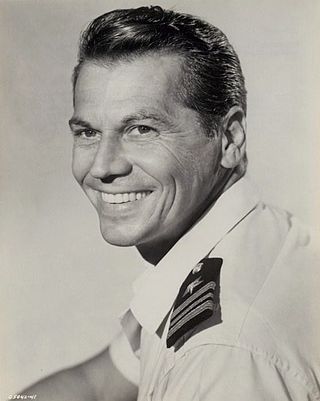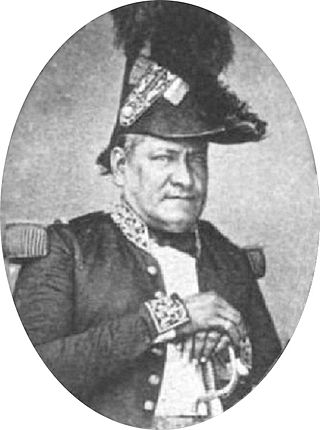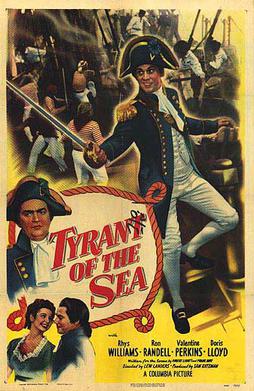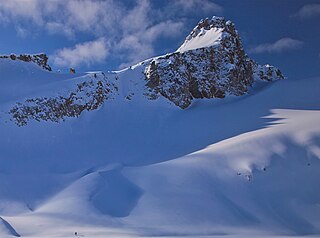
Herman Melville was an American novelist, short story writer, and poet of the American Renaissance period. Among his best-known works are Moby-Dick (1851); Typee (1846), a romanticized account of his experiences in Polynesia; and Billy Budd, Sailor, a posthumously published novella. At the time of his death, Melville was no longer well known to the public, but the 1919 centennial of his birth was the starting point of a Melville revival. Moby-Dick eventually would be considered one of the great American novels.

Moby-Dick; or, The Whale is an 1851 novel by American writer Herman Melville. The book is the sailor Ishmael's narrative of the maniacal quest of Ahab, captain of the whaling ship Pequod, for vengeance against Moby Dick, the giant white sperm whale that bit off his leg on the ship's previous voyage. A contribution to the literature of the American Renaissance, Moby-Dick was published to mixed reviews, was a commercial failure, and was out of print at the time of the author's death in 1891. Its reputation as a Great American Novel was established only in the 20th century, after the 1919 centennial of its author's birth. William Faulkner said he wished he had written the book himself, and D. H. Lawrence called it "one of the strangest and most wonderful books in the world" and "the greatest book of the sea ever written". Its opening sentence, "Call me Ishmael", is among world literature's most famous.

Typee: A Peep at Polynesian Life is American writer Herman Melville's first book, published in 1846, when Melville was 26 years old. Considered a classic in travel and adventure literature, the narrative is based on Melville's experiences on the island Nuku Hiva in the South Pacific Marquesas Islands in 1842, supplemented with imaginative reconstruction and research from other books. The title comes from the valley of Taipivai, once known as Taipi.

Billy Budd, Sailor , also known as Billy Budd, Foretopman, is a novella by American writer Herman Melville, left unfinished at his death in 1891. Acclaimed by critics as a masterpiece when a hastily transcribed version was finally published in 1924, it quickly took its place as a classic second only to Moby-Dick among Melville's works. Billy Budd is a "handsome sailor" who strikes and inadvertently kills his false accuser, Master-at-arms John Claggart. The ship's Captain, Edward Vere, recognizes Billy's lack of intent, but claims that the law of mutiny requires him to sentence Billy to be hanged.

Mardi: and a Voyage Thither is the third book by American writer Herman Melville, first published in London in 1849. Beginning as a travelogue in the vein of the author's two previous efforts, the adventure story gives way to a romance story, which in its turn gives way to a philosophical quest.

Omoo: A Narrative of Adventures in the South Seas is the second book by American writer Herman Melville, first published in London in 1847, and a sequel to his first South Sea narrative Typee, also based on the author's experiences in the South Pacific. After leaving the island of Nuku Hiva, the main character ships aboard a whaling vessel that makes its way to Tahiti, after which there is a mutiny and a third of the crew are imprisoned on Tahiti. In 1949, the novel was adapted into the exploitation film Omoo-Omoo, the Shark God.
Columba Murphy, SS.CC. was French Catholic priest of the Congregation of the Sacred Hearts of Jesus and Mary, a religious institute of the Roman Catholic Church. He helped found the Roman Catholic mission in the Gambier Islands and was one of the first Catholic missionaries to arrive in the Kingdom of Hawaii during the persecution by Kaʻahumanu, Kamehameha III and their American Congregationalist advisors.

Return to the Blue Lagoon is a 1991 American South Seas romantic adventure film directed and produced by William A. Graham and starring Milla Jovovich and Brian Krause. The film is a sequel to The Blue Lagoon (1980). The screenplay by Leslie Stevens was based on the 1923 novel The Garden of God by Henry De Vere Stacpoole. The original music score was written, composed, and performed by Basil Poledouris. The film's closing theme song, "A World of Our Own", is performed by Surface featuring Bernard Jackson. The music was written by Barry Mann, and the lyrics were written by Cynthia Weil.

Ronald Egan Randell was an Australian actor. After beginning his acting career on the stage in 1937, he played Charles Kingsford Smith in the film Smithy (1946). He also had roles in Bulldog Drummond at Bay (1947), Kiss Me Kate (1953), I Am a Camera (1955), Most Dangerous Man Alive (1961) and King of Kings (1961).

Beachcombing is an activity that consists of an individual "combing" the beach and the intertidal zone, looking for things of value, interest or utility. A beachcomber is a person who participates in the activity of beachcombing.

She Gods of Shark Reef is a 1958 B-adventure film directed by Roger Corman that was partially filmed on location in Kaua'i back to back with Naked Paradise in 1956. The film was distributed in 1958 by American International Pictures as a double feature with Night of the Blood Beast.
Tai Pī is a province of Nuku Hiva, in the Marquesas Islands, an administrative subdivision of French Polynesia. The settlement follows the line of the valley and the stream that passes from its mountainous island surroundings.

The bibliography of Herman Melville includes magazine articles, book reviews, other occasional writings, and 15 books. Of these, seven books were published between 1846 and 1853, seven more between 1853 and 1891, and one in 1924. Melville was 26 when his first book was published, and his last book was not released until 33 years after his death. At the time of his death he was on the verge of completing the manuscript for his first novel in three decades, Billy Budd, and had accumulated several large folders of unpublished verse.

The South Seas genre is a genre spanning various expressive forms including literature, film, visual art, and entertainment that depicts the islands of the southern Pacific Ocean through an escapist narrative lens. Stories may sometimes take place in tropic settings like the Caribbean or Bermuda. Many Hollywood films were produced on studio backlots or on Santa Catalina Island. The first feature non-documentary film made on location was Lost and Found on a South Sea Island, shot in Tahiti.

In the Heart of the Sea is a 2015 historical adventure-drama film directed and produced by Ron Howard and written by Charles Leavitt. It is based on Nathaniel Philbrick's 2000 non-fiction In the Heart of the Sea: The Tragedy of the Whaleship Essex, about the sinking of the American whaling ship Essex in 1820, an event that in part inspired Herman Melville's 1851 novel Moby-Dick. An international co-production between the United States and Spain, the film stars Chris Hemsworth, Benjamin Walker, Cillian Murphy, Tom Holland, Ben Whishaw, and Brendan Gleeson.

Tenaniʻa Ariʻifaʻaite a Hiro was a Prince consort of Tahiti. He was son of Hiro from Huahine and Teihotu alias Ta'avea daughter of Tamatoa III of Raiatea. He became second consort of his first cousin, Pōmare IV, Queen of Tahiti, who was likewise a maternal granddaughter of Tamatoa III. From their union were born:
- A boy, died of dysentery
- Henry Pōmare ., died of dysentery
- Ariʻiaue Pōmare, Crown Prince of Tahiti, Ariʻi of Afaʻahiti.
- Pōmare V, succeeded as King of Tahiti.
- Teriʻimaevarua II, succeeded as Queen of Bora Bora.
- Tamatoa V, succeeded as King of Raiatea.
- Victoria Pōmare-vahine.
- Punuariʻi Teriʻitapunui Pōmare, Ariʻi of Mahina and President of the Tahitian High Court.
- Teriʻitua Tuavira Pōmare, Ariʻirahi of Hitiaʻa, called the "Prince of Joinville".
- Tevahitua Pōmare.

Captain Ahab is a fictional character and one of the protagonists in Herman Melville's Moby-Dick (1851). He is the monomaniacal captain of the whaling ship Pequod. On a previous voyage, the white whale Moby Dick bit off Ahab's leg, and he now wears a prosthetic leg made out of whalebone. The whaling voyage of the Pequod ends up as a hunt for revenge on the whale, as Ahab forces the crew members to support his fanatical mission. When Moby Dick is finally sighted, Ahab's hatred robs him of all caution, and the whale drags him to his death beneath the sea and sinks the Pequod.

Tyrant of the Sea is a 1950 American historical war film set during the Napoleonic Wars and starring Ron Randell, Rhys Williams and Lester Matthews. It was directed by Lew Landers.

Omoo Peak is a 2,674-metre (8,773-foot) mountain summit in British Columbia, Canada.
















